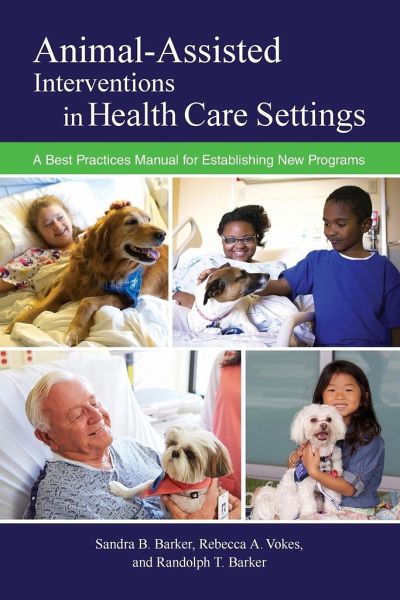
Animal-Assisted Interventions in Health Care Settings
A Best Practices Manual for Establishing New Programs

PAYBACK Punkte
14 °P sammeln!
Growing literature around the benefits of animal-assisted intervention (AAI) spurs health care professionals and administrators to start new programs. Yet the trend also raises questions of how best to begin and run successful AAI programs-under what circumstances, with what staff, and within what guidelines. Animal-Assisted Interventions in Health Care Settings: A Best Practices Manual for Establishing New Programs succinctly outlines how best to develop, implement, run, and evaluate AAI programs. Drawing on extensive professional experiences and research from more than fifteen years of leadi...
Growing literature around the benefits of animal-assisted intervention (AAI) spurs health care professionals and administrators to start new programs. Yet the trend also raises questions of how best to begin and run successful AAI programs-under what circumstances, with what staff, and within what guidelines. Animal-Assisted Interventions in Health Care Settings: A Best Practices Manual for Establishing New Programs succinctly outlines how best to develop, implement, run, and evaluate AAI programs. Drawing on extensive professional experiences and research from more than fifteen years of leading the Center for Human-Animal Interaction in the Virginia Commonwealth University School of Medicine, the authors discuss both best practices and best reasons for establishing AAI programs. For thorough consideration, the text explores benefits from a variety of perspectives, including how AAI can improve patient experience, provide additional career development for staff, and contribute favorably to organizational culture and to the reputation of the facility in the surrounding community. Developed for administrators as well as for volunteers and staff, Animal-Assisted Interventions in Health Care Settings includes practical, case-based examples for easy comprehension and offers an accompanying online user-friendly template that can be adapted to develop practice-specific training, evaluation, and procedure manuals.













